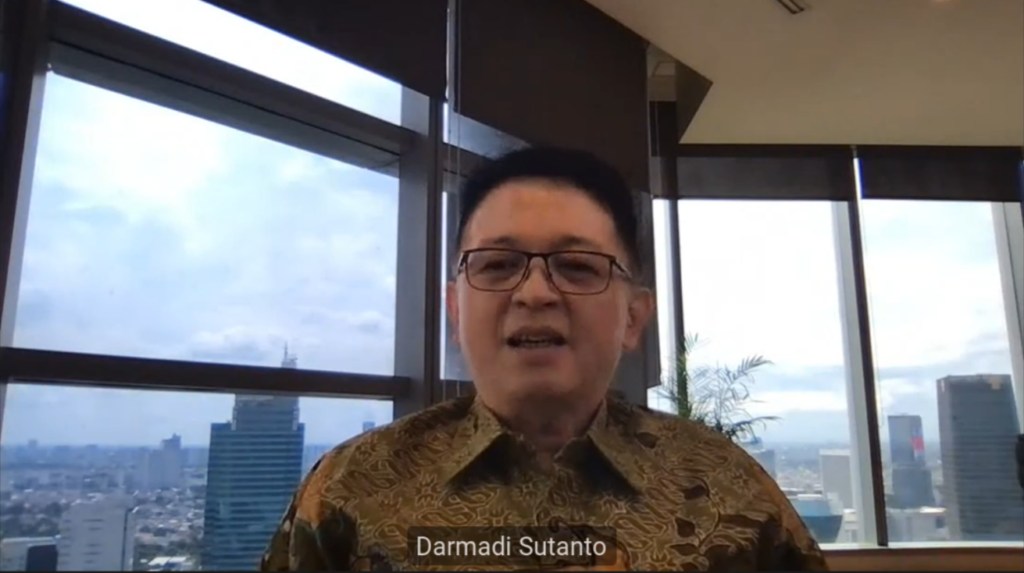Indonesia’s banking industry is on the verge of a revolution as a new breed of digital banks looks to capitalize on the country’s large population of unbanked and underbanked, and use the digital momentum created by the COVID-19 pandemic to propel their growth.
During Finastra’s virtual panel discussion moderated by Fintech News Networks’ editor Vincent Fong, top executives and policymakers from Otoritas Jasa Keuangan (OJK), Indonesia’s Financial Services Authority, Bank BTPN, Bank Neo Commerce, and global financial software provider Finastra, looked at the state of digital banking in Indonesia.
The webinar delved into the opportunities and challenges brought about digital technologies, and sharing their predictions for what’s to come next.
Acquisition spree
Tony, Deputy Director Department of Banking Research and Regulation, OJK, said that unlike Singapore and Hong Kong, Indonesia doesn’t have a dedicated digital banking license. Instead, the financial regulator introduced new rules back in 2021 to facilitate the introduction of digital banks through acquisitions.

Tony, Deputy Director Department of Banking Research and Regulation, OJK
While on one hand, the rules allow for near-full foreign ownership of local lenders and reduce red tape for new services, on the other, the regulator has raised the bar for setting new banks by more than tripling minimum capital requirements. With this move, OJK aims to spur consolidation in a banking industry that’s been characterized by numerous small lenders.
Formerly known Bank Yudha Bhakti, the lender officially rebranded into Bank Neo Commerce in 2020 as part of a shift to digital banking. Alibaba-backed fintech company Akulaku had been acquiring stakes in the small lender since 2019 before ultimately taking over in October 2021.
Akulaku is one of the many fintech operators and tech providers that have recently acquired bank licenses in Indonesia which they are now repurposing.
In late-2020, Indonesian Internet giant GoJek bought a stake in Bank Jago to start offering digital banking services right from the GoJek app. Meanwhile, Sea Group’s e-commerce arm Shopee acquired local lender Bank Kesejahteraan Ekonomi in February 2021 with the aim of transforming it into a digital bank. Hong Kong virtual bank WeLab said last year that it had raised US$240 million to acquire Bank Jasa Jakarta with plans to launch its second digital bank in Asia.
Improving financial inclusion
There are also hopes for digital banking to help improve financial inclusion. With about 270 million, Indonesia is the world’s fourth-most populous country. While half of the population remain underbanked and underbanked, about 60-70% own a mobile phone, meaning huge growth prospects for digital banking.
“We see digital banks as being very beneficial for Indonesia, which is a very large country with a large population,” Tony said.
“Digital banks … allow people to get services easily. People just need to download an app and opening an account now takes just a few minutes … It’s important to increase our financial inclusion in Indonesia.”
Tjandra Gunawan, President Director and CEO, Bank Neo Commerce said that the wave of digitalization triggered by the COVID-19 has already helped boost financial inclusion, noting that between 2019 and 2020, the proportion of financially excluded individuals decreased by 25 percentage points.
“This shows a very good movement,” Tjandra said.

Tjandra Gunawan, President Director and CEO, Bank Neo Commerce
“We believe in 2021, the number will be even be lower as more digital banks launch and more traditional banks embrace digital banking as well. We will be successful in reaching new customers.”
COVID-19 boosts digital adoption
Though digital adoption had been on the rise for years, the COVID-19 pandemic has accelerated the pace of adoption, forcing banks to innovate faster.
“Prior, digitalization wasn’t in [some of Indonesian banks’] priority list. Because of COVID-19, they had to put digitalization at the top of their list. They had no choice, they needed to survive and serve their customers,” Tjandra said. “For banks that had been going through a digitalisation plan, with COVID-19, the momentum is higher, so they had to move faster.”
Echoing Tjandra, Calvin Boo, Head, Retail Banking, Global Solutions Consulting APAC, Finastra, said that digital banking was “definitely heating up in Indonesia,” noting that his company has witnessed a rapid ramp-up in engagement with local lenders looking to transform. “This is an exciting time for digital banking in Indonesia,” Calvin said.

Calvin Boo, Head, Retail Banking, Global Solutions Consulting APAC, Finastra
London-headquartered Finastra provides products and services to the retail banking, transaction banking, lending and treasury capital markets, serving customers such as American Express, Commonwealth Bank of Australia, Bank of China and BNP Paribas.
In Indonesia, Finastra’s Fusion Digital Channels portfolio of online and mobile software has been powering Bank BTPN’s Jenius mobile banking platform from the get-go.
“Bank BTPN, five years ago, started to look into [the digital banking] opportunity. That was an early time to have a digital bank,” said Darmadi Sutanto, Deputy President Director, Bank BTPN.
“Bank BTPN wasn’t a prime bank at the time, so we needed to have something outside the box to be able to be present in the retail banking space. That’s how Jenius was born in 2016.”

Darmadi Sutanto, Deputy President Director, Bank BTPN
As of Q1 2021, Jenius had 3.18 million users, making it the leader in the Indonesian digital banking space. But while being an early adopter has certainly given the bank a leg up, retaining its top position is becoming somewhat of a challenge.
“Competition came really fast, especially during the pandemic. Within the last one, two years, we’ve seen so many other competitions from the traditional banks as well as the neobanks,” Darmadi said.
“This has created dynamism and enrichment in the country … For me, competition is to become better institutions [and offer better] solutions.”
Evidenced of the rapid uptake in digital banking is the surge in signups Bank Neo Commerce has witnessed since it transitioned into a digital bank less than a year ago, Tjandra said.
“Over the past two years, digitalization has become so massive. Last year alone, we saw 13.3 million customers. We had just launched our app in March 2021. So in just 10 months, we were very blessed to get 13.3 million users. This shows the high interest from the public to use digital banking services.”
Looking ahead
As digital banking continues to grow, Calvin believes demand for banking-as-a-service (BaaS) will increase, in addition to open banking and open APIs.
For Bank BNTP’s Darmadi, global trends such as lifestyle banking will ultimately reach the shore of Indonesia. Given the country’s young demographic, building customer loyalty will revolve around providing life services in addition to banking, and attracting customers with rewards.
“Today, moving from one bank to another is so easy, so it’s important to build loyalty, consistency and trust,” Darmadi said. “If you talk to Gen Z or Gen Y, they see banks as a tool for them. A banking application isn’t different from any other mobile app to fulfill their needs.”
At OJK, Tony said the regulator is looking to introduce two pieces of regulation, including one involving digital banking and IT risk management.
“With the digital banking regulation, we will try to follow what we already issued in our Blueprint [for Digital Transformation in Banking],” Tony said. “Currently, we are still working on these regulations, we will then publish a draft and get the insights from the industry.”
Cybersecurity rules are also in the works, he said, adding that the regulator is working with international peers considering the global nature of cyber threats.
“One of the biggest risks [of digital banking] is cybersecurity and because of the global nature of it, we understand that we need to communicate with other financial regulators and that there are systemic risks,” Tony said. “That’s why we have collaborations with other financial regulators around the world to address cybersecurity risks.”








